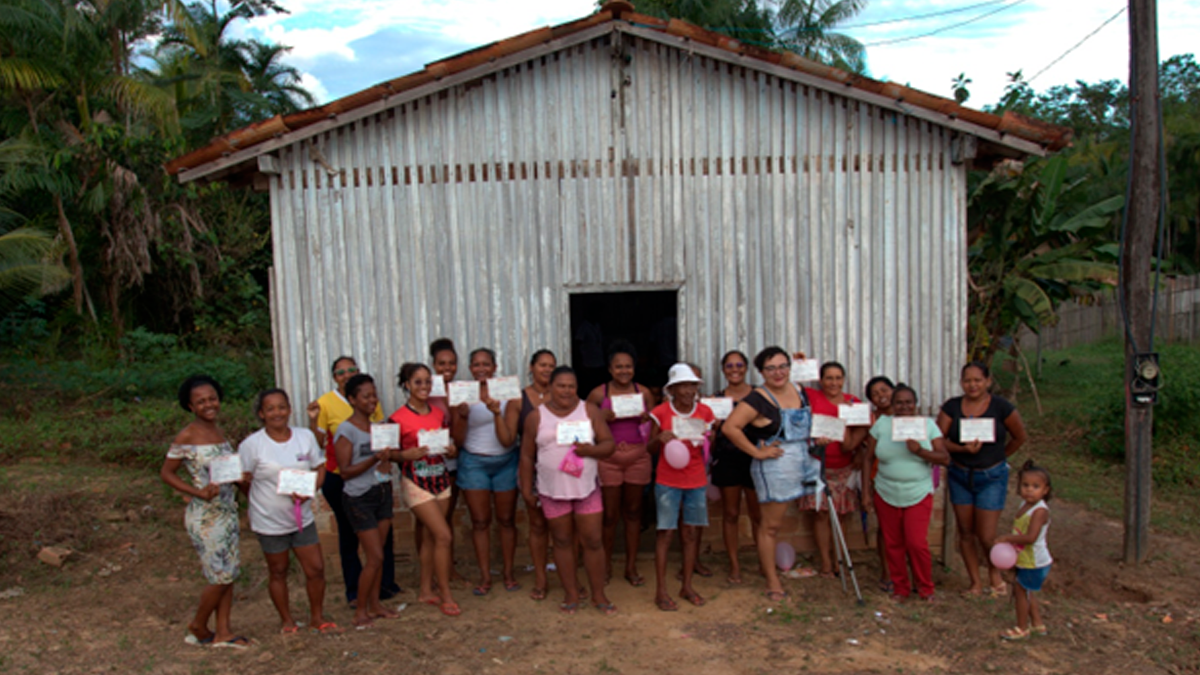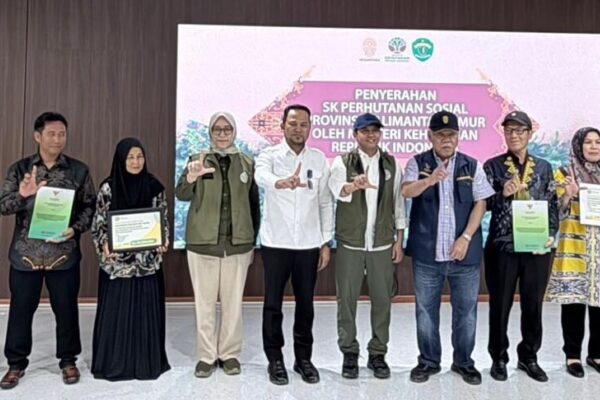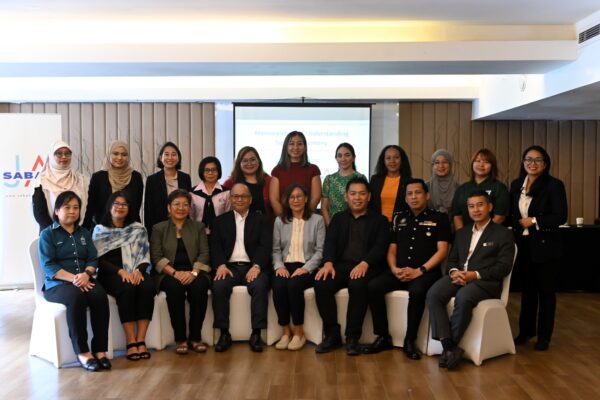The Foundation is already implementing some of the themes to be discussed at COP30 in cities in Pará state.
As published by correioparaense, November 15 2025.
Earthworm Foundation's team* is at the United Nations Climate Change Conference, COP 30, to follow the issues and present its projects and progress. A global non-profit organisation offering innovative and sustainable solutions to the most critical communities and ecosystems on the planet, headquartered in Switzerland, Earthworm has a presence in Africa, Asia, and Latin America, and has also had a strong presence in Pará since 2008.
Earthworm professionals include agronomists, forestry engineers, and biologists. “The company aims for a world with preserved forests, communities with rights and opportunities, and agriculture that contributes to global food security and climate stability,” says João Carlos Silva, Director of Earthworm Foundation Brazil. “Earthworm works with partners to address social and environmental challenges, acting practically, from the field to decision-making. Therefore, holding COP 30, precisely in one of our main areas of operation in Brazil, will be very beneficial for everyone working towards this goal,” he adds.

Landscape – The Foundation's program, developed in Tomé-Açu, Pará, has already benefited more than 1,000 small farmers in sustainable agricultural practices; 300 women have received leadership training, and 173,200 hectares of land have benefited from sustainable management in palm oil landscapes. In addition, more than R$1 million has already been accessed by rural enterprises through food acquisition policies or financing.
Earthworm also operates in the cities of Altamira and Santarém/PA, among others.
Specifically, the microregion of Tomé Açu faces a complex scenario, where vulnerable rural communities, involved in historical disputes over land ownership, coexist with the expansion of production chains that depend on the resources of the Amazonian biome. To address these challenges, the Foundation has adopted a human rights-oriented approach, aiming to promote sustainable supply chains that respect nature and are conflict-free.
The Landscape Program in Tomé-Açu aims to improve the living conditions of families integrated into the production chains of palm oil, cocoa, and other products, focusing on aspects such as increased income, sustainable farm management, food security, economic resilience, entrepreneurship encouragement, and gender equality promotion. Furthermore, it seeks to contribute to the protection and regeneration of the Amazon biome's natural resources. The program involves four projects :
1. Family Farming Resilience – Palma. The objective is to strengthen family farming and develop food security. This is one of Earthworm's first projects in the territory. It began in 2018 with the registration of beneficiaries, using a form that supported a customised action plan for the most urgent needs of the family farmers involved. The main challenges presented were: low levels of technology in the production process, low productivity, lack of farm management, low production diversification, lack of rural technical assistance (ATER), high levels of food insecurity, lack of environmental and land tenure documentation for the properties, lack of knowledge of rural entrepreneurship, and gender issues.
Given this scenario, the Foundation's main actions have been capacity building through training, seminars, and field days; as well as providing ATER (Technical Assistance and Rural Extension), distributing technical materials, and facilitating exchanges between producers. More than 10 training sessions are held annually, focusing on regenerative agriculture, production diversification, crop improvement, and agroecological gardens. Along with the training, Earthworm offers a range of tools, including a producer's notebook and a farm's agricultural calendar, among others.
“During the assessment, it was also noticed that the work of women, who cared for the home and worked in the fields, was not valued,” says Eric Batista, Project Manager at the Earthworm Foundation.
Thus began the “Empowerment Journey,” a series of workshops that combine self-awareness and entrepreneurship for women. “Their lives are changing through the generation of income from their more diversified properties,” Batista reports. He adds that activities with women have been the most efficient way to engage families, as men often begin to participate effectively in the project after the women have become involved.
Throughout its history, the Foundation has also helped create a network of local entrepreneurs formed to exchange knowledge and strengthen the local entrepreneurial culture. It offered support and collaborated in the journey to formalise the creation of two associations, founded in 2024:
– AMPROFE (Association of Residents, Rural Producers and Riverside Dwellers of the Fé em Deus Community and Region), currently with 35 producers, focuses on improving the productivity of small crops such as beans, cassava and bananas, among others, for supply to the common market and food procurement policies.
– AMAPRUANI (Association of Residents, Farmers and Rural Producers of the Nova Inácia Settlement), with 83 producers. It focuses on supplementary income to agriculture, such as the sale of handmade soap, handicrafts and food. These are women who are seeking opportunities. It was through partnerships supported by the Foundation that they were able to access credit for the construction of houses and the acquisition of the association's headquarters.
Between 2023 and 2025, 31 training sessions were held, 152 rural environmental registrations (CAR) were regularised, 252 family farming certificates (CAF) were issued, and training was provided to improve the nutrition of 75 families. Today, there are 10 rural enterprises (associations and cooperatives), 10 projects supported with incubation processes, and 10 business plans developed for the incubated companies.
2. Roots for the Future – Protecting and regenerating the Amazon rainforest. This project aims to promote carbon-neutral practices through more sustainable actions, including the implementation of agroforestry systems and oil palm/cocoa intercropping, forest restoration, and the transition from chemical to organic fertilisation. It began this year and is expected to continue until 2029. Twenty-seven rural producers are engaged in this initiative, implementing areas based on holistic farm management plans.
One of the objectives is to generate verified carbon benefits, contributing to a low-carbon palm oil supply chain. “In these initial years, we are doing what we call baseline monitoring, which is simply understanding the amount of CO2 before the interventions. From the third year onwards, we will begin to measure the amount of carbon captured accurately,” explains Batista.
3. Territories for the Future Project – Aims to understand the relationship between Quilombola communities and their rights guarantees within the context of the palm oil supply chain in the microregion of Tomé Açu. To this end, it conducts dialogues between communities and other actors in the territories, following the guidelines governing the Free, Prior, and Informed Consent (FPIC) protocols, and provides training and workshops on topics related to territorial recognition, associativism/territorial management, as well as Free, Prior, and Informed Consent. These actions aim to empower communities and enhance their autonomy in seeking the guarantees of their rights. Today, the project operates in nine Quilombola communities within the microregion of Tomé Açu (comprising Tomé Açu, Acará, Concórdia do Pará, Moju, and Tailândia), positively impacting an area of approximately 6,000 hectares. This positive impact reaches 924 families, directly benefiting 356 individuals (38.52% of the families positively affected by the project).
The project is progressing in the Tomé Açu Microregion with a committee, formed by quilombola leaders and representatives of municipal public authorities, justice, and governance, that monitors progress, provides input, and participates in action planning. It represents an essential tool for dialogue, transparency, and engagement with stakeholders in the territory.
The project also continues with the theme of territorial recognition, featuring the creation of nine participatory maps developed using information provided by residents of quilombola communities during training sessions. These maps helped initiate the territorial recognition process for two quilombola communities (Tucumandeua and Castelo Baixo Rio Moju), the creation of two community action plans, developed with the communities, which will guide them in seeking public policies for their territories and ensuring their rights, as well as the creation of five Free, Prior and Informed Consent protocols, guaranteeing the right of quilombola communities to be heard regarding actions that may be implemented in their territories, respecting their experiences, cultures, and customs.
The focus is on expanding its activities to 12 quilombola communities, advancing/facilitating the territorial recognition process for all beneficiary communities, developing four more Free, Prior, and Informed Consent Protocols, and preparing two additional community action plans.
4. ART Plan – A methodology created in 2014 by Earthworm to evaluate priority suppliers for its members in relation to their compliance with public commitments. Currently implemented in the palm oil supply chain, in partnership with global companies, the initiative aims to be a catalyst for sustainable practices that benefit both the environment and communities, thereby establishing a benchmark for the global transition towards fairer and more responsible supply chains. In the 10 years of ART, 10 palm oil refineries have already been reached, more than 10,000 workers in the supply chain have improved their working conditions, and over 110,000 hectares of forest have been protected. ART covers 130,000 hectares of palm plantations, with a commitment to zero deforestation and compliance with human rights.
Earthworm: respect for each community and the environment.
Among Earthworm's distinguishing features, as Eric Batista explains, is understanding and respecting that each community has its own way of life and way of facing the challenges of the rural environment, and engaging them to be the protagonists of this change. "In our projects, we apply all the principles of free, prior and informed consent – FPIC, transparency, and valuing local knowledge," he explains. "As a positive outcome of these projects, we hope that farmers, rural enterprises, and communities will have the autonomy to develop their activities according to their way of life, with social and economic development, while protecting natural resources."
By promoting more sustainable tools, the environment is also protected. “
Many large companies want to ensure that their supply chain is aligned with their sustainability policies, thus promoting a territory free from the main obstacles to this clean trade. Earthworm helps all links in the chain to develop their activities in line with policies, ensuring development throughout the entire chain,” adds Batista.


